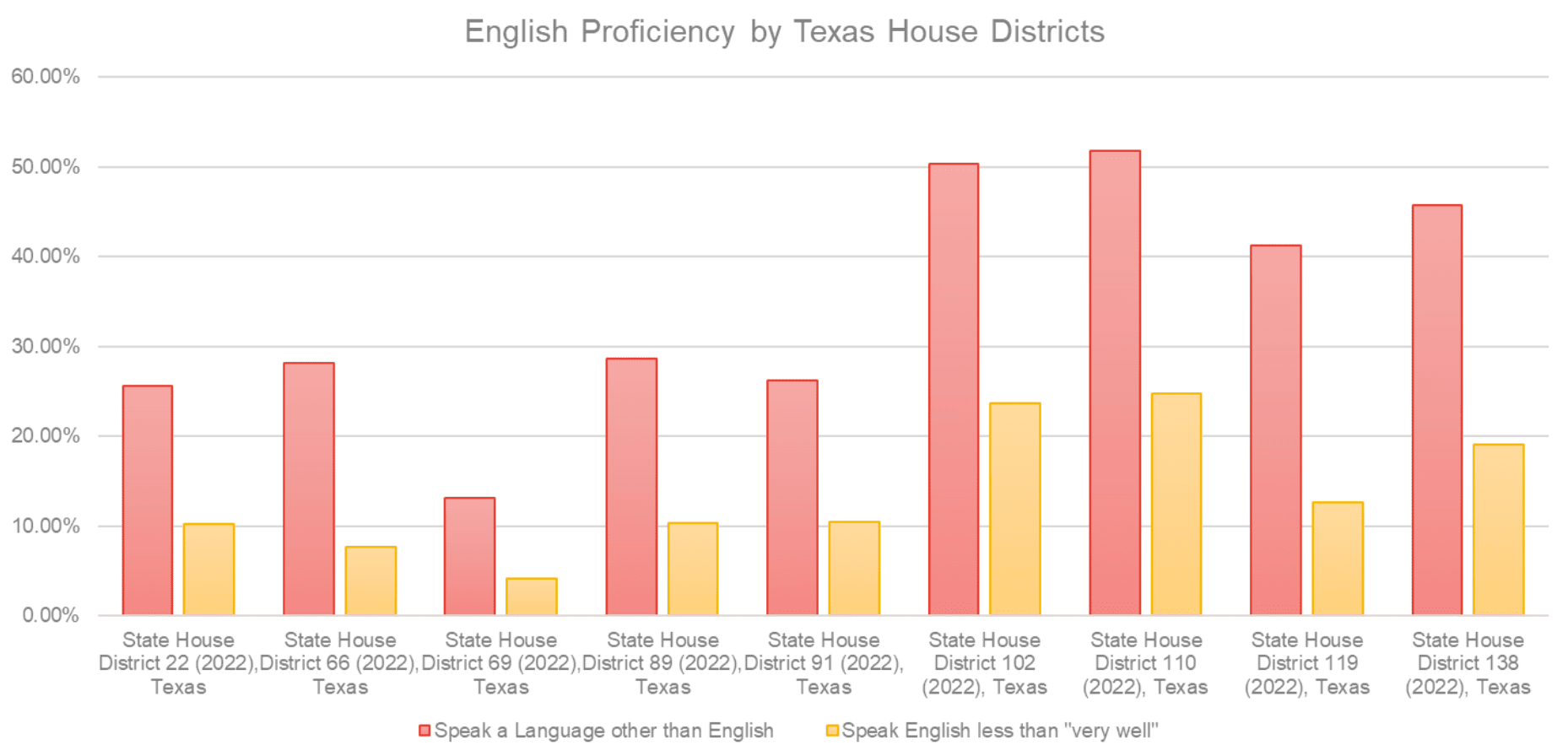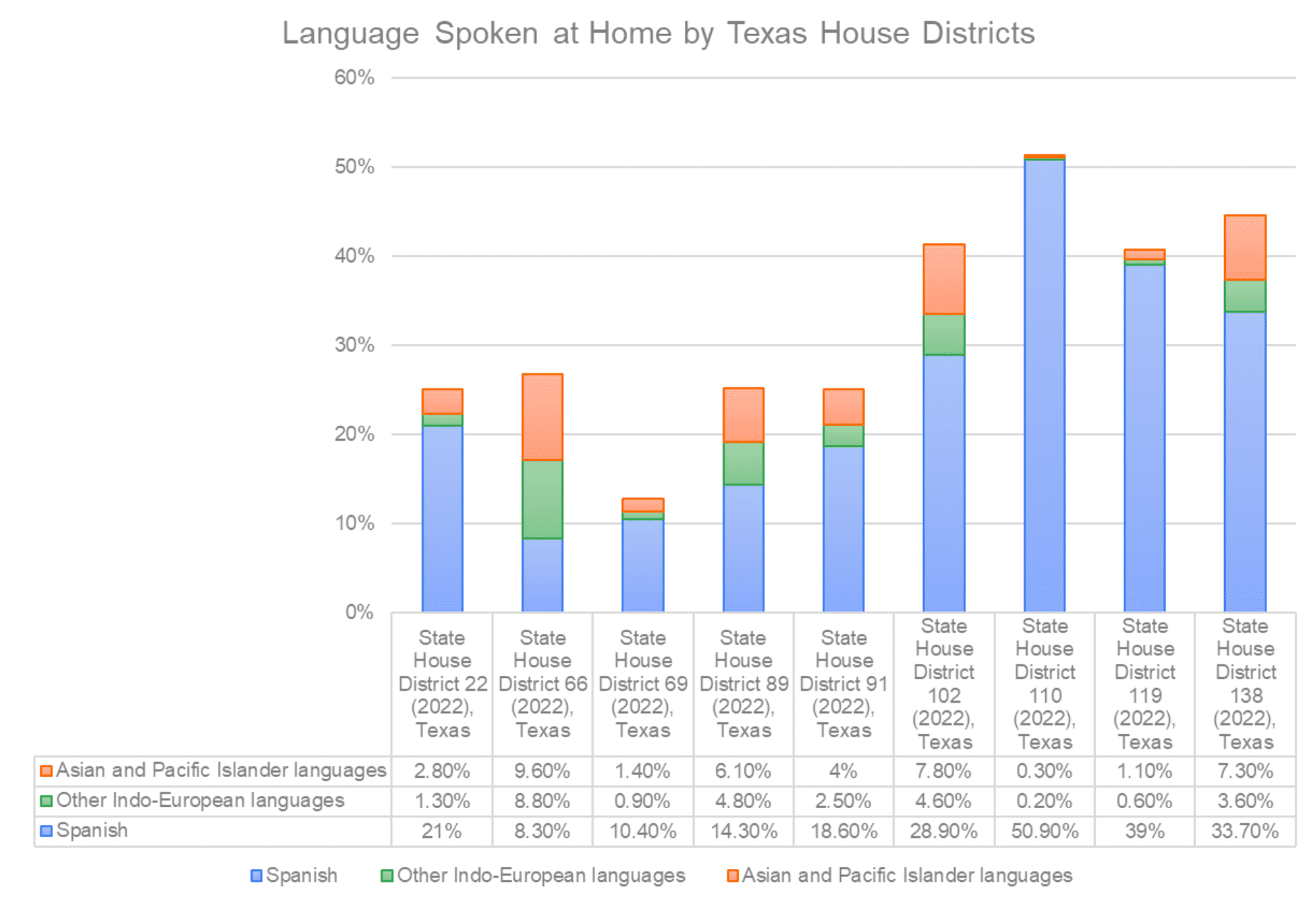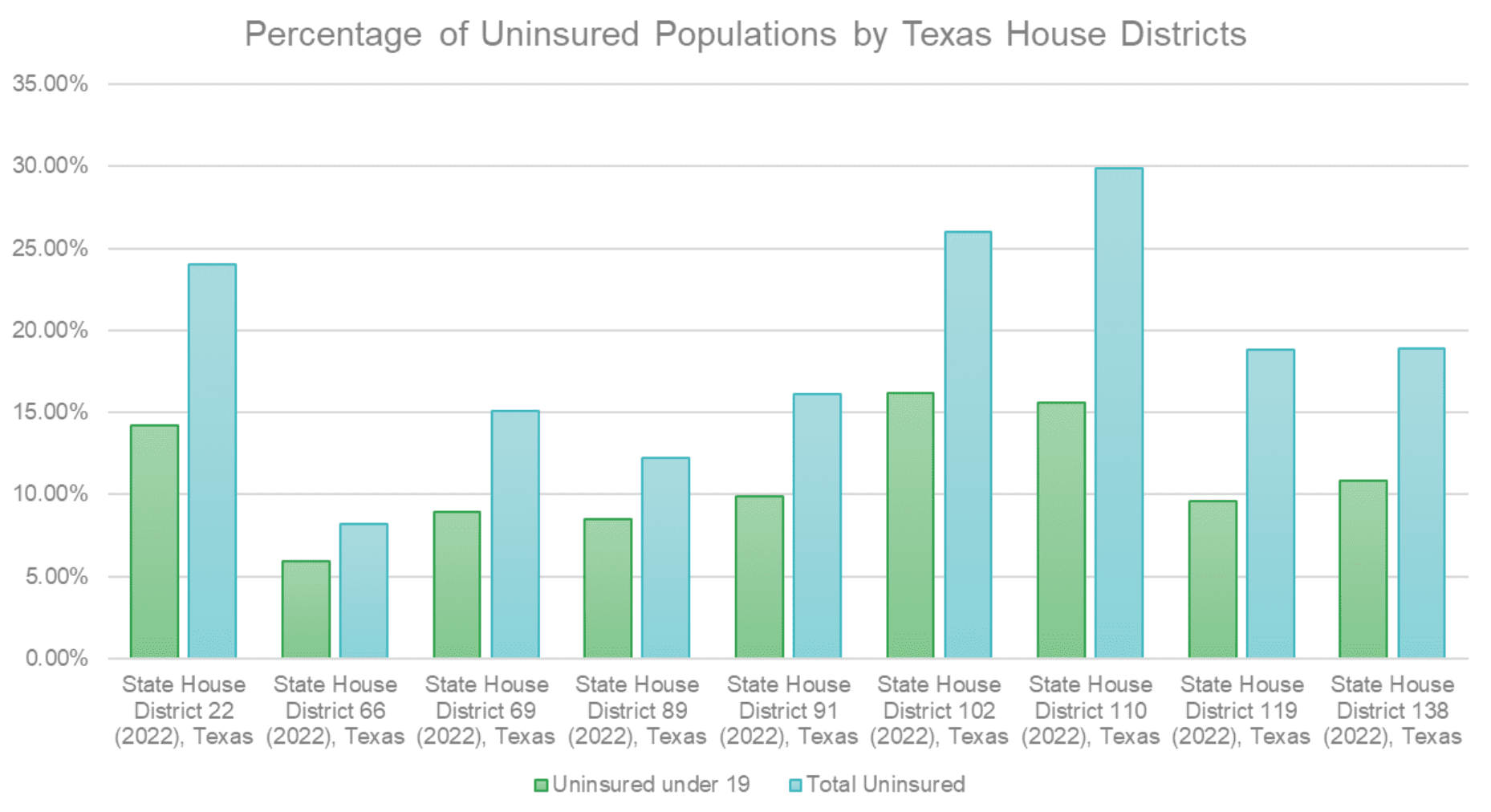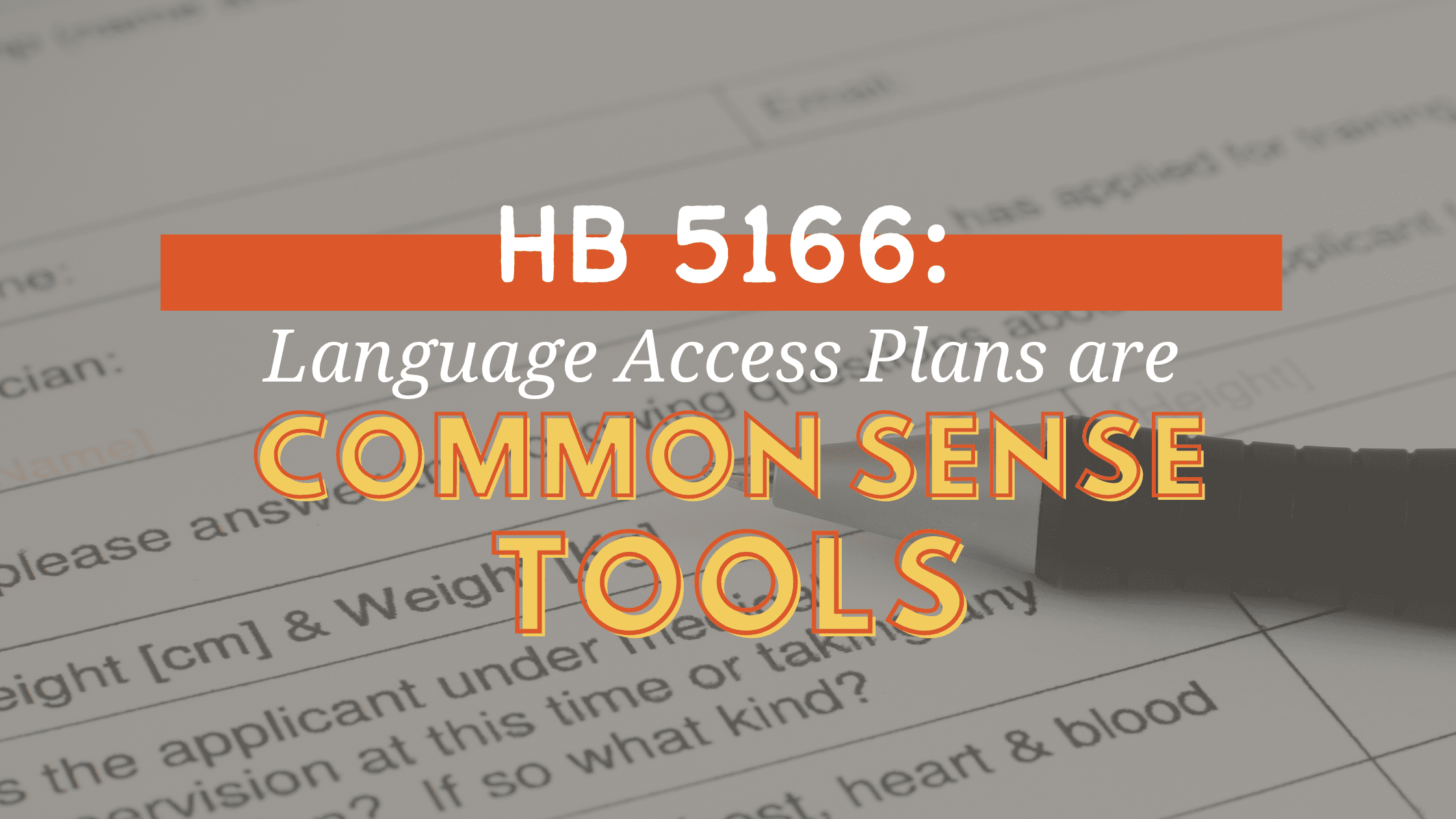View this testimony as a PDF here.
Every Texan (formerly CPPP) appreciates the opportunity to testify in support of HB 5166. The Benedictine Sisters of Boerne, Texas, founded Every Texan (formerly CPPP) in 1985 to advance public policy solutions that expand access to health care. Today, we prioritize policies that will measurably improve equity in and access to health care, food security, education, and financial security. We are based in Austin and work statewide.
Medicaid and Supplemental Nutrition Assistance Program (SNAP) are essential programs that provide vital assistance to low-income Texans, helping them to access the food and health care they need to maintain their health and well-being. However, for many Texans who are limited English proficient or who have other communication needs, navigating the application process can be extremely challenging. Language barriers can prevent pregnant women, parents, or grandparents raising grandchildren from completing applications accurately and in a timely manner, leading to delays or denials of benefits.
HB 5166 would reduce language access barriers for families trying to access services
HB 5166 directs the Texas Health and Human Services Commission (HHSC) to create a Language Access Plan (LAP) which makes sure all Texans have access to application materials in commonly spoken languages. This bill would direct HHSC to make key resources including applications, notices, and Your Texas Benefits available in multiple languages, including Spanish, Vietnamese, Korean, Chinese, and Arabic.
Texas households commonly speak languages other than English

More than one in three Texas households speak a language other than English, and 13% of Texans have limited English proficiency. In most of the Texas House districts represented on the House Human Services Committee (Districts 22, 89, 91, 102, 110, 119, and 138), 25% or more of residents speak a language other than English, and 10% or more of the district’s residents speak English “less than very well.” In Texas House Districts 102 and 110, more than half of the district’s residents speak a language other than English.
Language barriers prevent eligible Texans from enrolling in Medicaid and SNAP
The Texas House recently passed 12 months of postpartum coverage for new moms. To ensure all Texas mothers and their babies have the best chance at staying healthy, we need to remove language barriers that prevent pregnant women from accessing Medicaid and WIC. Texas cannot reach all eligible children and pregnant women when Medicaid, CHIP, and SNAP applications and services are only available in English and sometimes in Spanish.
HB 5166 would require translation and interpretation in languages spoken by groups in Texas with populations of at least 50,000, of which at least 33% have limited English proficiency. That includes Spanish, Vietnamese, Korean, Arabic, Mandarin/Cantonese, and Chinese. Of those that speak a language other than English at home, Spanish is the next most spoken language in each district represented by this committee. However, Asian and Pacific Islander languages account for more than 5% of the population in districts 68, 89, 102, and 138. House District 66 also has more than 8% of the population speaking other Indo-European languages.

Our state is home to both the highest rate(18%) and number of uninsured people. Texas House districts 22, 102, and 110 have a higher uninsured rate than the state average.

National studies prove that adults lacking English proficiency are at higher risk of being uninsured compared to those who are English proficient. Pre-pandemic data show at least 400,000 Texas children were uninsured in 2019 despite being eligible for Medicaid or CHIP, making it harder for them to go to doctor check-ups, get medicine, access mental health support, and more. In April, HHSC began re-checking eligibility for all 5.9 million Texans with Medicaid following a 3-year nationwide pause on disenrollments during the pandemic. Unfortunately, the state is only providing outreach resources in English and in Spanish, leaving community organizations to step in so enrolled Texans understand what is happening.
Language Access Plans are a common-sense tool
LAPs ensure equitable access to services and rights related to language access by informing LEP communities of their rights, translating public information and announcements viewable in public spaces, and through outreach to LEP communities.
Translating program applications and materials to multiple languages will reduce the cost of live interpretation services provided through 2-1-1. Currently, when non-English or Spanish speakers call 2-1-1, they go through a series of prompts in English to request an interpreter and potentially get connected to one. By having materials available in multiple languages, Texans will know about program requirements, how to complete an application, and be able to submit applications with supporting documentation. This one-time investment will save the agency money spent on interpretation and ongoing staff time.
LAPs are common across the US and are used by other Texas state agencies, including the Texas Commission on Environmental Quality (TCEQ) (2021), the Texas Department of Transportation (TX DoT) (2014), and the Texas Supreme Court (2014). An HHSC LAP does not have to start from scratch; it can be built off of the federal blueprint. By passing HB5166, we can ensure all Texans, regardless of language proficiency, have access to the critical social services they need to maintain their health and well-being.
For additional information, contact Karla Martinez at martinez@everytexan.org.
